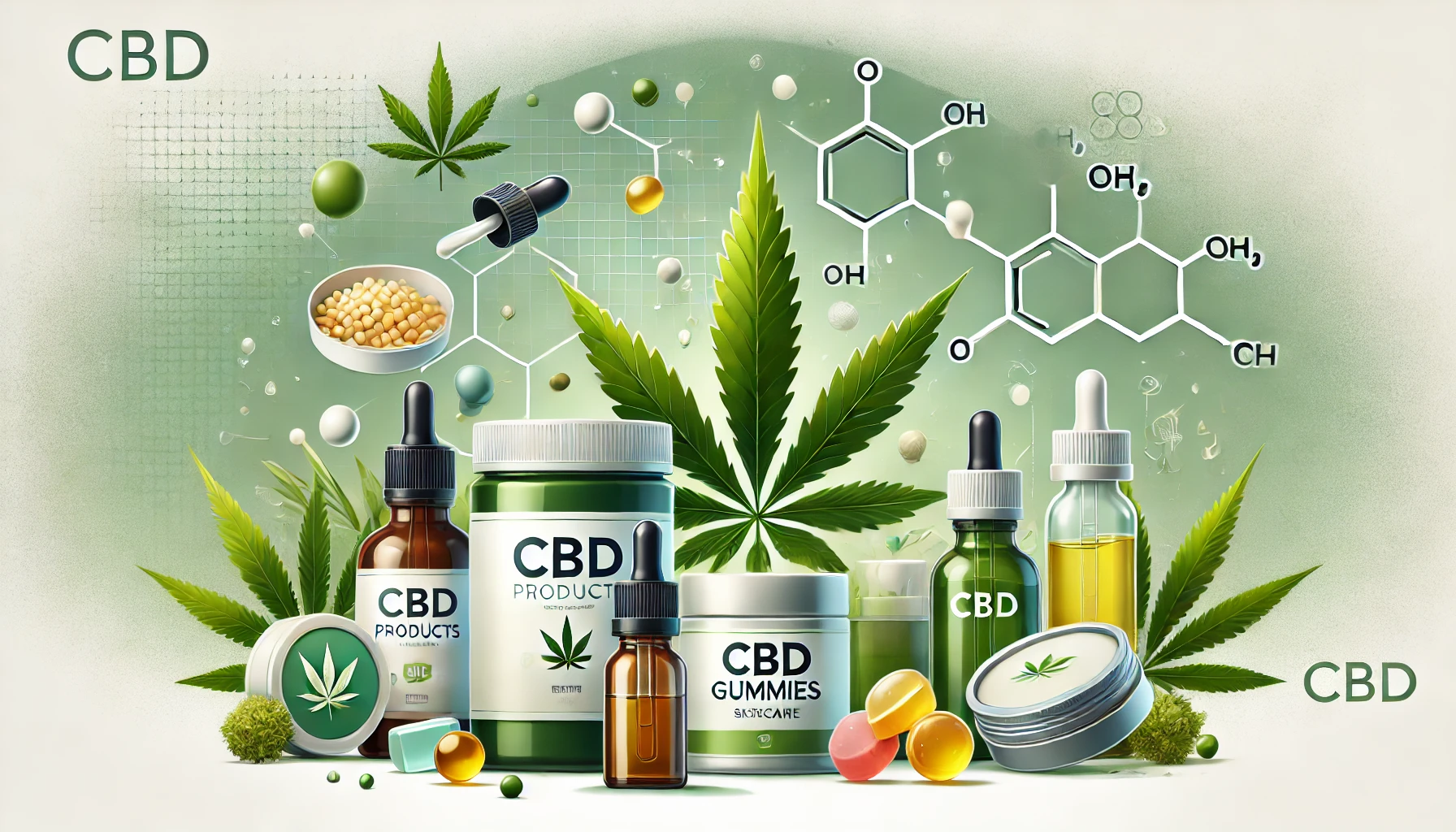Cbd Products Are Everywhere - Here's What You Should Know
Discover everything you need to know about CBD products, their benefits, how to choose high-quality options, and potential side effects. Learn how CBD can help with pain, anxiety, sleep, and more.

Aug 04, 2024
CBD (cannabidiol) products have surged in popularity over recent years, appearing in everything from oils and tinctures to gummies and skincare products. As their presence grows in stores and online, it's essential to understand what CBD is, its potential benefits, and what you should look for when choosing CBD products. This article aims to provide comprehensive information about CBD, helping you make informed decisions about its use.
What Is CBD?
CBD, or cannabidiol, is a naturally occurring compound found in the cannabis plant. Unlike THC (tetrahydrocannabinol), which is known for its psychoactive effects, CBD does not produce a high. Instead, it is often praised for its potential therapeutic benefits, which range from pain relief to anxiety reduction.
Origins And Extraction
CBD is extracted from hemp, a variety of cannabis with low THC levels. The extraction process involves removing the CBD from the plant material, which can then be refined into various forms such as oils, tinctures, capsules, and edibles.
How CBD Works
CBD interacts with the endocannabinoid system (ECS) in the human body, which plays a crucial role in maintaining homeostasis. The ECS has receptors (CB1 and CB2) that interact with cannabinoids to regulate various physiological processes, including pain, mood, and inflammation.
Potential Benefits Of CBD
Pain Relief
One of the most common uses of CBD is for pain management. Studies suggest that CBD can help alleviate chronic pain by influencing endocannabinoid receptor activity, reducing inflammation, and interacting with neurotransmitters.
Anxiety And Stress Reduction
CBD has been found to have a calming effect on the central nervous system. Research indicates that it may help reduce symptoms of anxiety and stress by altering the brain's response to serotonin, a neurotransmitter associated with mood regulation.
Sleep Improvement
Many users report that CBD helps improve sleep quality. It is believed to do so by addressing underlying issues such as anxiety and pain that can interfere with restful sleep.
Skin Health
CBD's anti-inflammatory properties make it a popular ingredient in skincare products. It is used to treat conditions like acne, eczema, and psoriasis by reducing inflammation and regulating oil production.
Neuroprotective Properties
Some studies suggest that CBD has neuroprotective properties, which may benefit conditions like epilepsy and multiple sclerosis. The FDA has approved a CBD-based drug, Epidiolex, for the treatment of certain types of epilepsy.
Choosing The Right CBD Products
With the market flooded with CBD products, it's crucial to choose high-quality options. Here are some factors to consider:
Source Of Hemp
Look for products made from organically grown hemp to ensure they are free from pesticides and harmful chemicals.
Extraction Method
CO2 extraction is considered the gold standard for CBD extraction. It preserves the purity of the CBD without using harmful solvents.
Third-Party Testing
Reputable CBD companies provide third-party lab test results, ensuring the product's potency and purity. These tests should confirm the absence of contaminants like heavy metals and pesticides.
Full-Spectrum Vs. Isolate
Full-spectrum CBD contains all the cannabinoids found in the cannabis plant, including trace amounts of THC, which can enhance the therapeutic effects (known as the entourage effect). CBD isolate, on the other hand, contains only CBD without other cannabinoids.
Potential Side Effects
While CBD is generally well-tolerated, some people may experience side effects, including:
- Dry mouth
- Dizziness
- Changes in appetite
- Diarrhea
It is advisable to consult with a healthcare provider before starting CBD, especially if you are taking other medications.
Legal Considerations
The legality of CBD varies by location. In the United States, CBD derived from hemp (with less than 0.3% THC) is legal at the federal level, but state laws can vary. It's essential to check local regulations before purchasing or using CBD products.
FAQs
What Is The Difference Between CBD And THC?
CBD and THC are both cannabinoids found in cannabis. The primary difference is that THC produces psychoactive effects (a high), while CBD does not. CBD is often used for its potential therapeutic benefits.
How Do I Know If A CBD Product Is High Quality?
Look for products that provide third-party lab test results, use organically grown hemp, and employ CO2 extraction methods. Checking reviews and brand reputation can also be helpful.
Can CBD Make You Fail A Drug Test?
Most drug tests screen for THC, not CBD. However, full-spectrum CBD products may contain trace amounts of THC, which could result in a positive test. If this is a concern, opt for CBD isolate products.
How Should I Take CBD?
CBD can be taken in various forms, including oils, tinctures, edibles, capsules, and topicals. The best method depends on your needs and preferences. Oils and tinctures provide fast absorption, while edibles and capsules offer longer-lasting effects.
Is CBD Safe To Use With Other Medications?
CBD can interact with certain medications, potentially altering their effectiveness or causing side effects. It is important to consult with a healthcare provider before combining CBD with any prescription or over-the-counter drugs.
How Much CBD Should I Take?
The appropriate dosage of CBD varies based on factors such as body weight, the condition being treated, and individual tolerance. It is best to start with a low dose and gradually increase until the desired effects are achieved.
Conclusion
CBD products have become ubiquitous, offering potential benefits for pain relief, anxiety reduction, sleep improvement, and skin health. Understanding what CBD is, how it works, and how to choose high-quality products is essential for anyone considering its use. By staying informed and consulting with healthcare providers, you can make the most of CBD's potential benefits while minimizing risks.